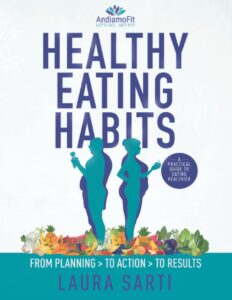Almost everyone tries to lose weight. Being overweight not only affects personality and self-confidence, but it is also harmful to health. Weight gain increases the risk of diseases such as diabetes and high cholesterol.
This is why losing excess weight is important, both for appearance and health. Some people exercise and diet to lose weight, but still see no results. As a result, many become disappointed. What many don’t know is that several daily habits are responsible for increasing body weight.
Not Losing Weight after Gym?
Many people go to the gym and spend hours doing various exercises. Their aim is to lose weight and keep the body in shape. However, despite doing these exercises, some people find that their weight isn’t decreasing. There are several mistakes in the gym that could prevent you from losing weight.
Causes of Not Losing Weight after Gym
Focus on Food
Remember, weight depends on your body’s health and physical structure. Exercising for hours while eating irregularly can make you gain weight instead of losing it. Weight is affected by body water content, muscle mass, daily food intake, sleep, and physical activity. Weight loss depends on how much food and drink you consume.
Hormonal changes in women can also hinder weight loss. At the gym, you may be focusing on building muscle while also losing fat, which is why you may not see the scale drop. Many people only do cardio, which is good for overall health, but if your goal is to lose weight, only doing cardio is a mistake. Skipping warm-ups before starting weight-loss exercises is another common mistake, leading to wasted efforts.
Not Exercising or Over-Exercising
If you don’t eat properly and don’t exercise regularly, muscle loss can occur. This may cause digestion problems. Moderate exercise helps reduce body fat and prevents your metabolism from slowing down. However, excessive exercise can also cause physical issues. It’s not sustainable in the long term and can create stress. Excessive exercise disrupts hormonal balance, leading to negative effects.
While burning more calories through exercise is necessary for weight loss, you need to ensure you’re meeting your daily nutritional requirements. Weight training and cardio several times a week are the right strategies for maintaining metabolism while losing weight. Skipping exercise or going to the gym irregularly results in muscle loss and a slowed metabolism.
Exercising in the Wrong Way
Many people exercise under the guidance of a trainer but don’t follow their instructions properly. For example, an exercise that should be done in 3 sets of 10 minutes may instead be done in 5 sets of 5 minutes, which can hinder weight loss. Exercise should be done according to your level and the trainer’s recommendations. Doing too much or too little can both be harmful.
Dumbbell exercises should be performed regularly to lose weight, as they increase strength and physical performance, and help reduce belly fat. Effective fat-loss techniques include aerobic exercises and weight lifting, which increase the body’s metabolic rate, control muscle mass, and reduce fat.
Eating Too Many or Too Few Calories
To lose weight, calories must be reduced. You need to burn more calories in the gym than you consume. For years, it was believed that cutting 3,500 calories per week would result in a loss of 1 pound (0.45 kg) of fat, but recent studies show that the required calorie deficit varies by individual. You may be eating healthy foods after working up a sweat at the gym, but they might be high in calories. For example, nuts and fish are calorie-dense and should be eaten in moderation.
On the other hand, reducing your calorie intake too much while exercising regularly can also backfire, causing muscle loss and a slowed metabolism. Eating too few calories can leave you feeling hungry all the time, while consuming too many can prevent weight loss.
Choosing Low-Fat Diets
Processed low-fat foods are popular, but they can have the opposite effect on weight loss. Sugar is often added to these foods to improve taste, which can increase hunger and lead to overeating. Without enough protein in your diet, weight loss efforts may fail. Protein-rich foods help reduce hunger and maintain or even increase your metabolic rate. High-protein foods are not just meat or dairy; beans and peas are also excellent sources. Additionally, not consuming enough fiber-rich foods or drinking sugary drinks can hinder weight loss.
Obesogens
When we think of weight gain or obesity, unhealthy eating habits and a sedentary lifestyle often come to mind. However, those unable to lose weight despite regular exercise and diet may have another cause: obesogens. Obesogens are chemicals that disrupt your digestive system and sometimes affect your sex hormones.
High levels of obesogens in the body can increase the size and number of fat-storage cells while reducing beneficial bacteria. This leads to a thicker fat layer under the skin and increases the risk of conditions like type 2 diabetes, high blood pressure, heart disease, sleep apnea, and even cancer. Obesogens can also affect hormonal activity and digestion. Exposure to obesogens in the womb or during childhood can alter DNA structure and affect future generations.
Intake of Caloric Drinks
Whether it’s fruit juice or another drink, keep in mind that extra calories can come from liquids. “Many of us don’t know how many calories are consumed through beverages,” says Bradley. For example, fruit juices and soft drinks are often loaded with sugar, which contributes to weight gain. Alcohol also increases calorie intake and slows down metabolism.
Not Getting Enough Rest
A good night’s sleep is crucial. No matter how much you exercise, if you don’t get enough rest, you’ll gain weight. Inadequate sleep prevents the body from recovering and causes hormone imbalances, leading to cravings for high-calorie and carbohydrate-rich foods. Over-exercising without proper rest also increases the risk of injuries.
Paying More Attention to Exercise than Nutrition
Exercise is vital for weight loss, but it must be balanced with proper nutrition. “Unhealthy eating habits destroy the benefits of exercise,” says Brady. The 80/20 rule applies: 80% of your weight loss depends on what you eat, and 20% depends on exercise.
If your caloric intake exceeds your output, no amount of exercise will lead to weight loss. Along with exercising, it’s essential to eat nutritious foods and monitor your calorie intake.
Skipping Breakfast
Many people skip breakfast, either out of hurry or to reduce calories, but breakfast provides energy for the entire day. Skipping breakfast makes you feel hungrier later, leading to overeating and weight gain. It’s essential to start the day with a protein-rich breakfast.
Late-Night Eating
Late-night eating is another common habit that contributes to weight gain, especially if you go to bed soon after eating. Nighttime meals should be consumed between 7–8 p.m., followed by a walk to aid digestion.
Lack of Physical Activity
Many people have sedentary jobs that limit physical activity, which leads to weight gain and other health issues. It’s important to exercise for at least 30 minutes each day. Taking breaks to walk during work hours is also beneficial.
Eating Out Too Much
Even if you’re strict about your diet during the week, eating out or indulging in grilled foods on the weekend can have a significant impact on your weight.
Not Checking Body Weight Regularly
Failing to check your body weight regularly means missing out on important information about your progress. Monitoring your weight frequently can help motivate you.
Misconceptions About Weight Loss
Lose Weight by Drinking Lemon Water
One common myth is that consuming lemon juice with honey in warm water on an empty stomach promotes weight loss. While lemon contains citric acid, it has no direct impact on burning fat. Citric acid doesn’t have any scientific basis to support weight loss, though lemon juice does offer benefits like vitamin C and potassium, which can aid skin health and metabolism.
However, it won’t magically melt fat. Furthermore, honey, which is often added to this concoction, contains 64 calories per teaspoon, potentially increasing calorie intake rather than reducing it. Those with stomach ulcers should avoid drinking lemon water on an empty stomach, as the acidity can aggravate their condition.
Eating Rice Increases Weight
Many believe that rice contributes significantly to weight gain. While rice is a carbohydrate-rich food, the belief that it inherently causes weight gain is not entirely accurate. Carbohydrates are a crucial source of energy, and 50% of our daily caloric intake should come from them. In rural or working-class areas where rice is consumed in large quantities, individuals often maintain a healthy weight due to their physical activity levels.
Weight gain associated with rice typically stems from eating excessive portions, low physical activity, or consuming processed forms like polished rice without removing the starch. Instead of cutting out rice completely, moderating intake and opting for healthier cooking methods can manage weight better.
Sour Foods for Weight Loss
Some people think that eating sour foods aids weight loss. This myth is based on the misunderstanding that the acids in sour foods burn fat. In reality, sour foods, particularly those high in salt, can lead to water retention, contributing to weight gain. Therefore, eating sour foods in moderation, without excessive salt, is essential for maintaining a balanced diet.
Skipping Breakfast Helps Weight Loss
Skipping breakfast in the hope of cutting calories is another misconception. Breakfast is an essential meal that fuels your body for the day ahead. Missing breakfast can lead to a drop in blood sugar levels, causing cravings later and overeating throughout the day, which may result in weight gain. Research shows that people who skip breakfast are more likely to be overweight because they tend to consume larger meals later in the day.
Cholesterol-Free Oil Leads to Weight Loss
Many assume that using cholesterol-free oils can promote weight loss. However, aside from coconut oil, most vegetable oils do not contain cholesterol in the first place. Oils, regardless of their cholesterol content, are calorie-dense, with 9 calories per gram. To lose weight, it’s important to use all types of oils in moderation. Even if oils are marketed as healthy or cholesterol-free, overconsumption can still lead to weight gain.
No-Carb Diets Are Best for Weight Loss
The “no carb” trend is prevalent in weight loss circles, but cutting out carbohydrates entirely can be harmful. Carbohydrates are the body’s primary energy source, essential for balancing blood sugar and maintaining overall health. Many people mistake rice and bread as the only carb sources while still consuming pasta, pizza, noodles, and other high-carb foods. Rather than cutting out carbs altogether, focusing on consuming healthy, whole-grain carbohydrates and practicing portion control is a more sustainable approach.
Weight Loss Through Starvation
Starving oneself in an effort to lose weight can backfire. Skipping meals leads to intense hunger and overeating later. Furthermore, the body may start storing fat as a survival mechanism. Many people fast one or two days a week to lose weight, but then overeat during iftar or following the fast, negating any potential benefits. Instead, it’s better to eat small, balanced meals throughout the day to support metabolism and prevent weight gain.
Eating Expensive Foods is Necessary for Weight Loss
There’s a misconception that expensive foods like green tea, chia seeds, oats, or supplements are necessary for weight loss. While these foods can aid in a weight loss journey, they are not magical solutions. You won’t lose weight by simply adding them to a diet high in calories. The key is moderation and a balanced approach to eating nutritious, affordable foods that fit within your daily calorie requirements.
Bottom Line
Losing weight is not about following fad diets or believing in weight loss myths. Sustainable weight loss requires a calorie deficit, regular physical activity, sufficient rest, and the adoption of healthy habits. It’s important to understand that there are no quick fixes or shortcuts—achieving and maintaining a healthy weight involves balance, patience, and consistency.








Pingback: Running Tips and Benefits | How to Enjoy Running